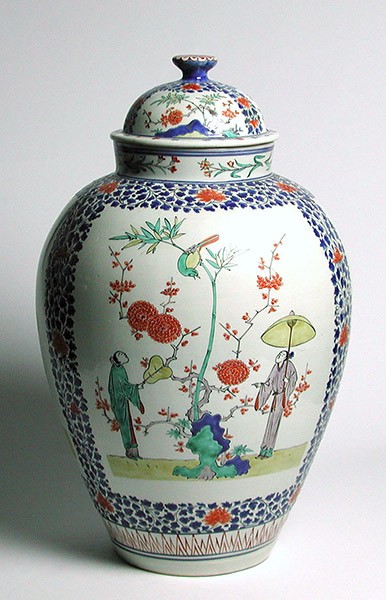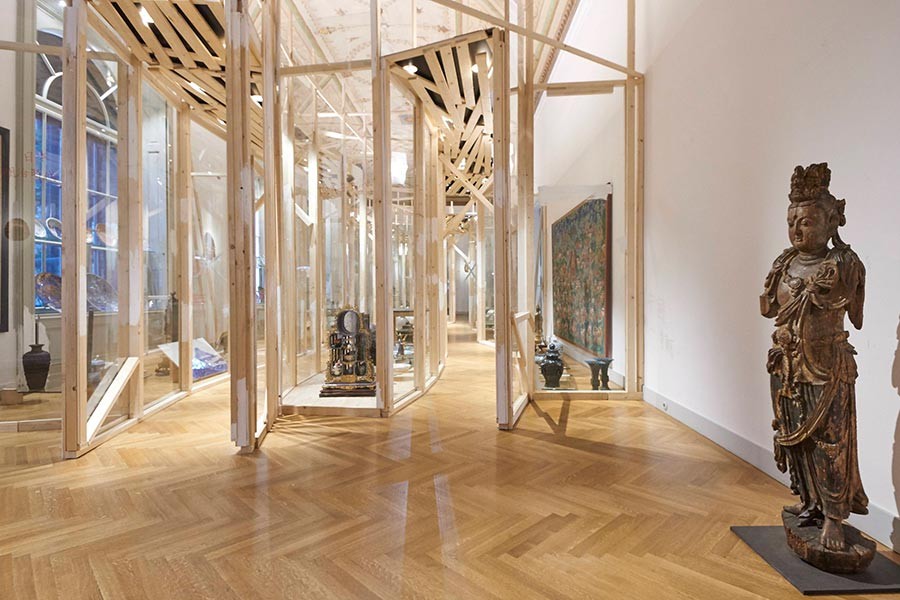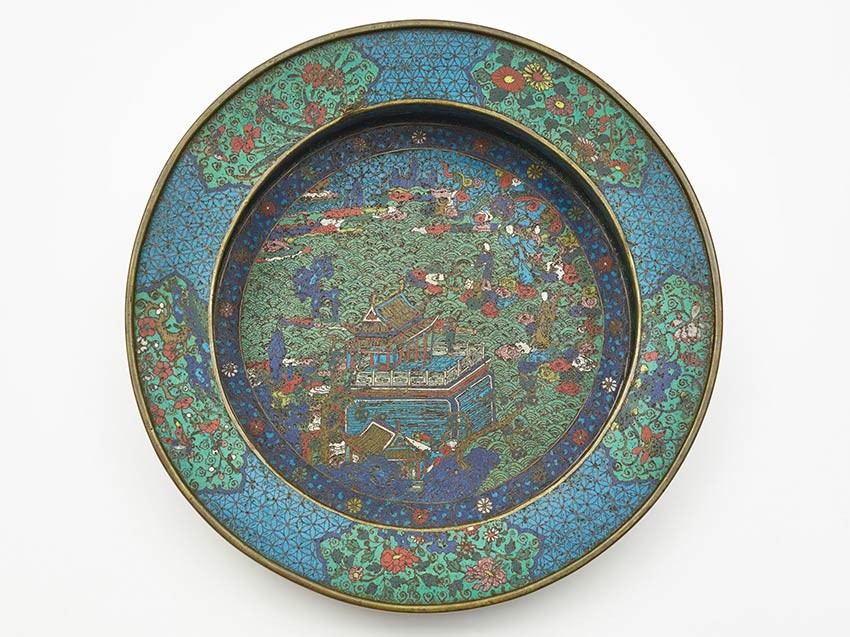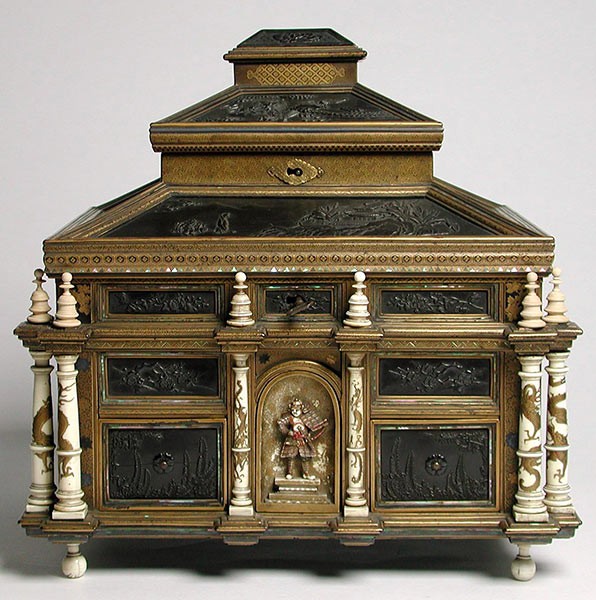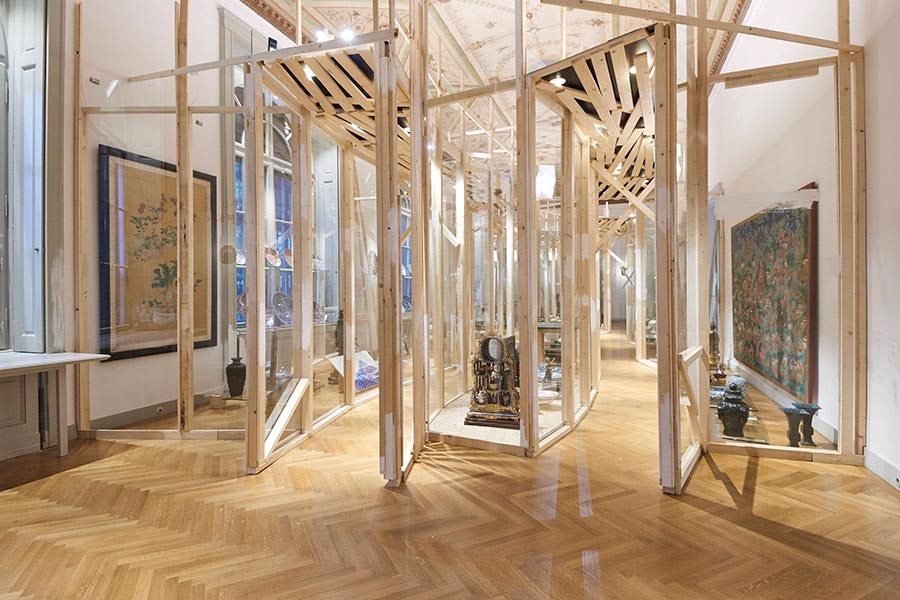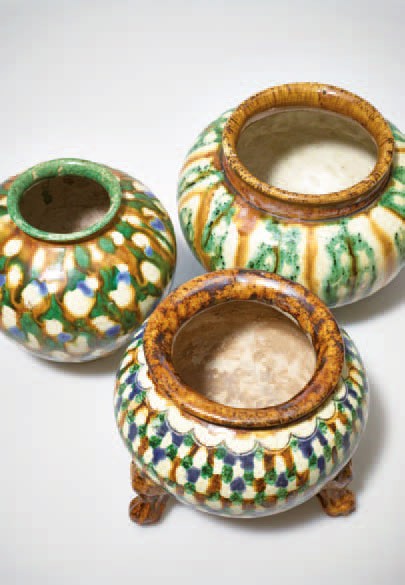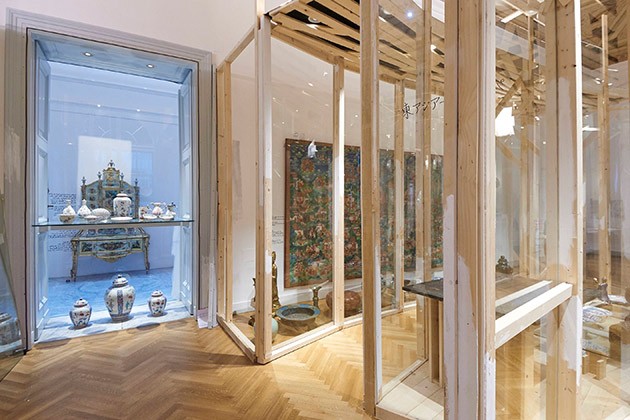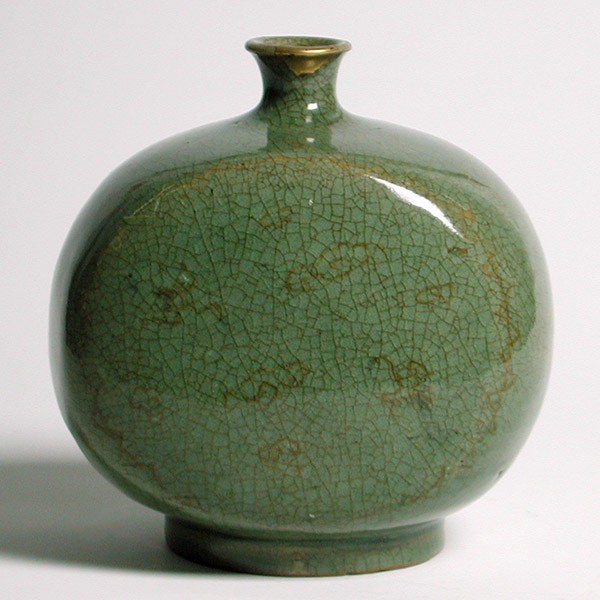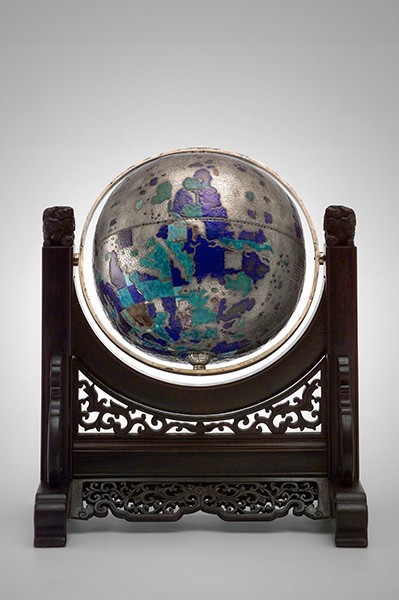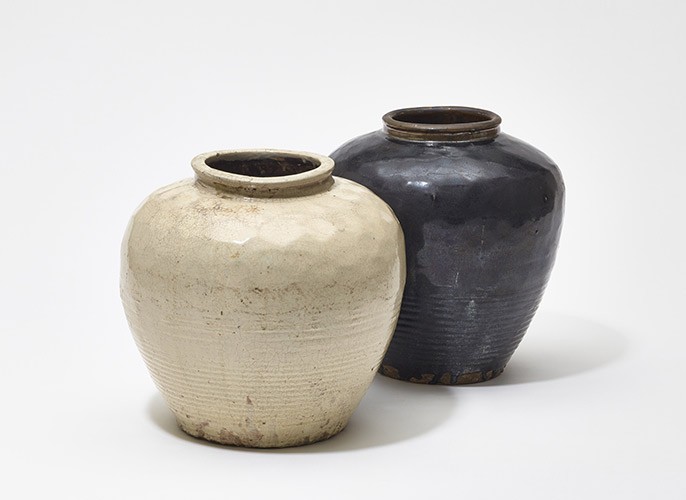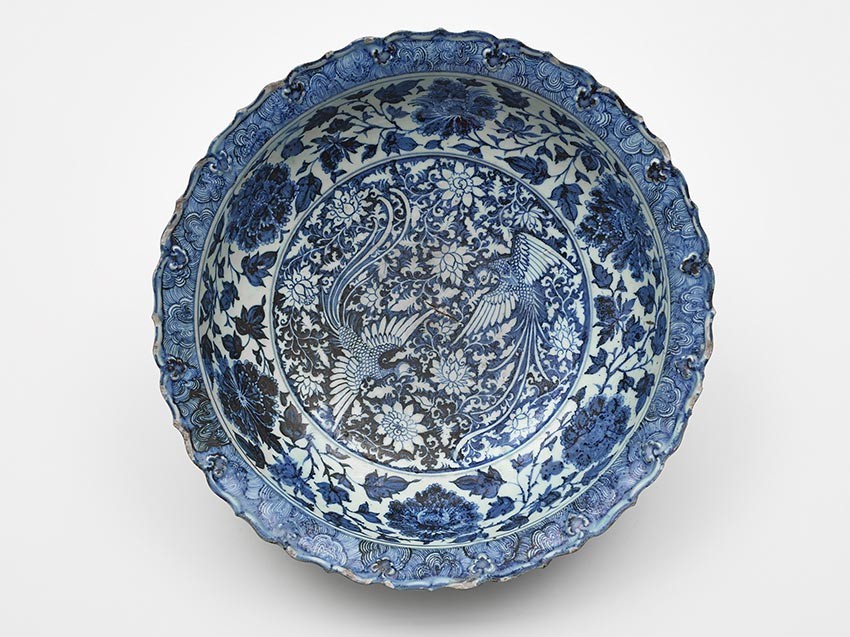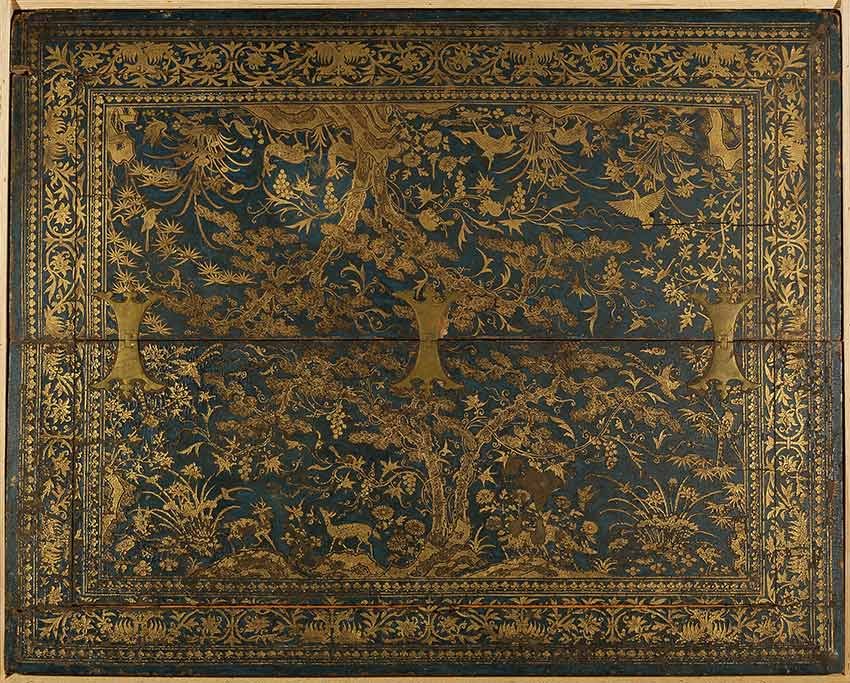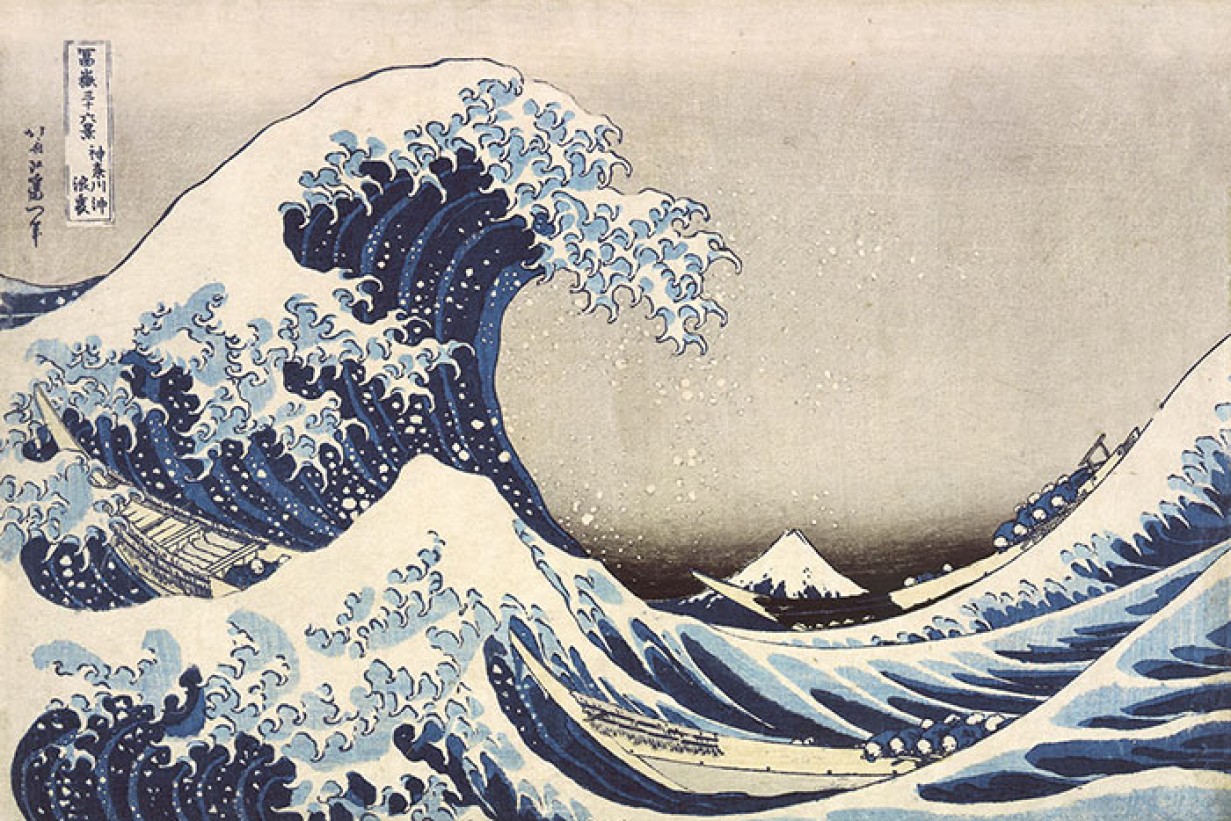
Permanent Collection ASIA
Artistic intervention: Tadashi Kawamata
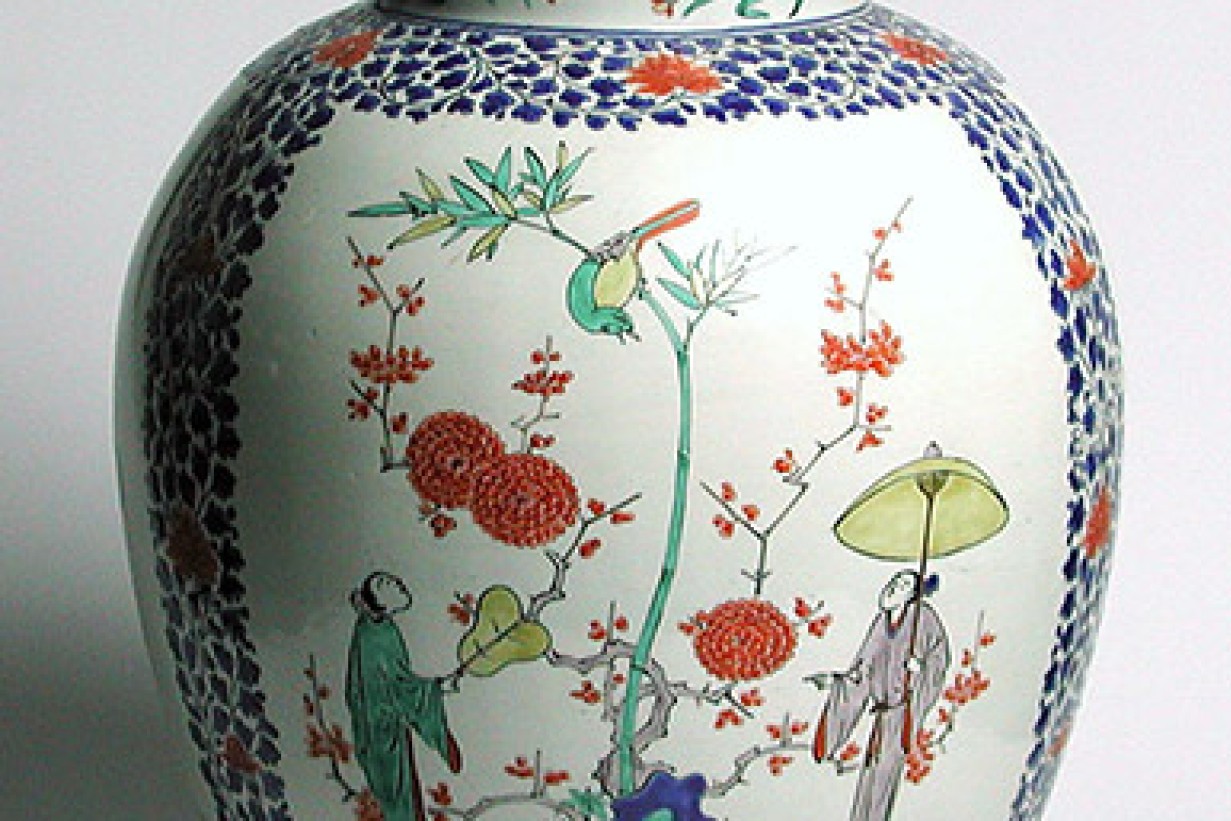
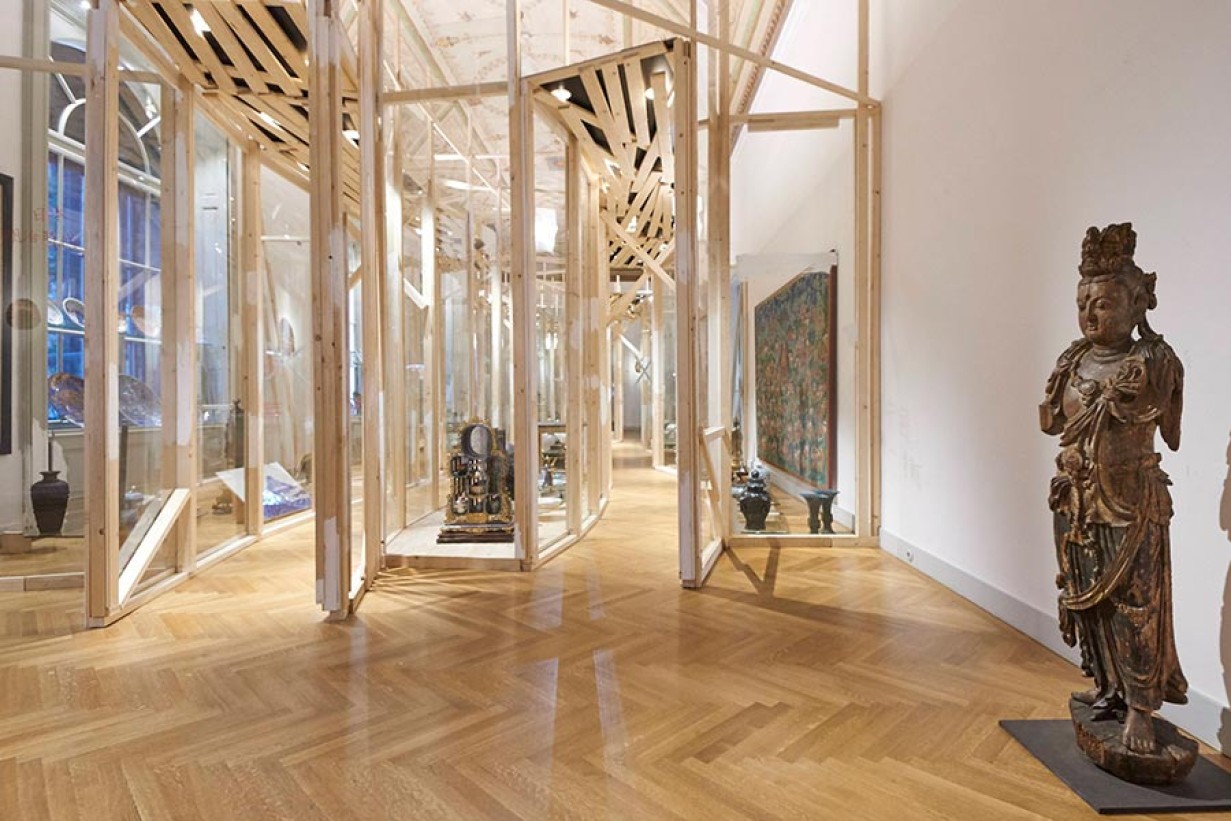
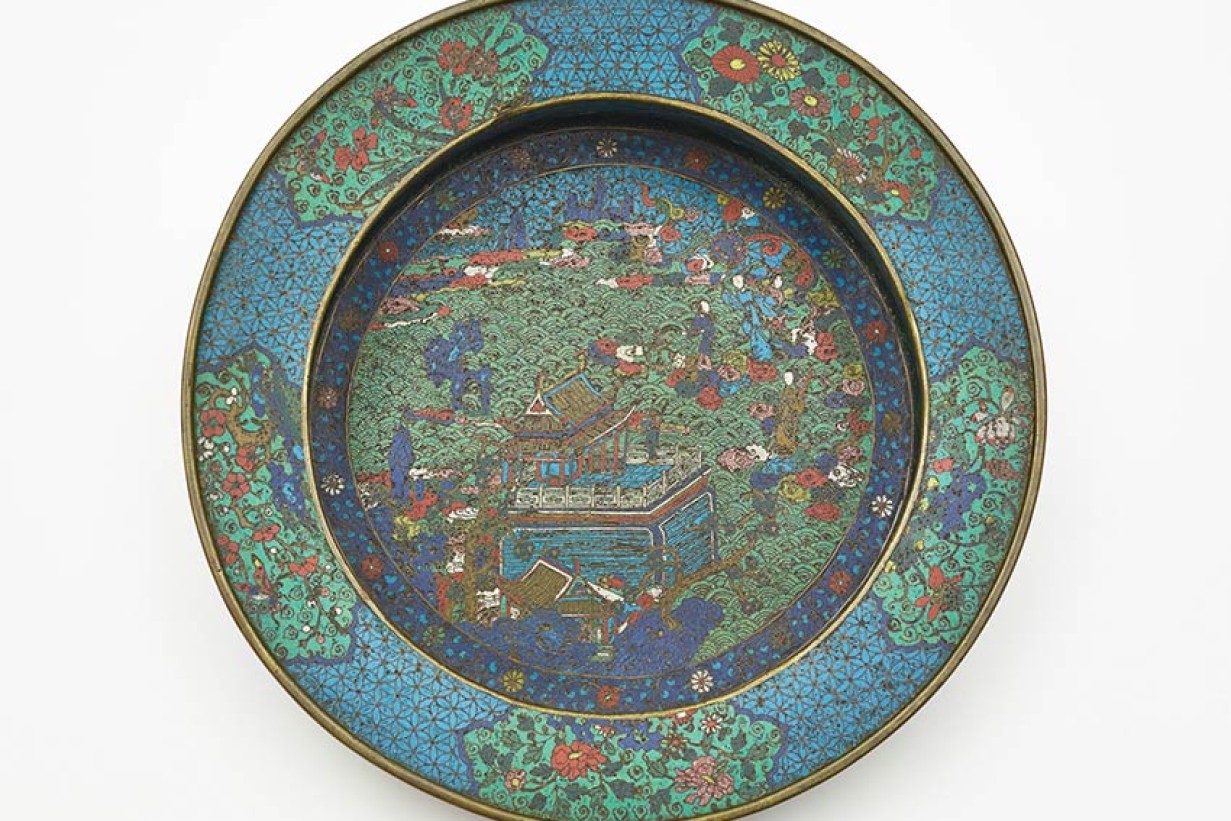
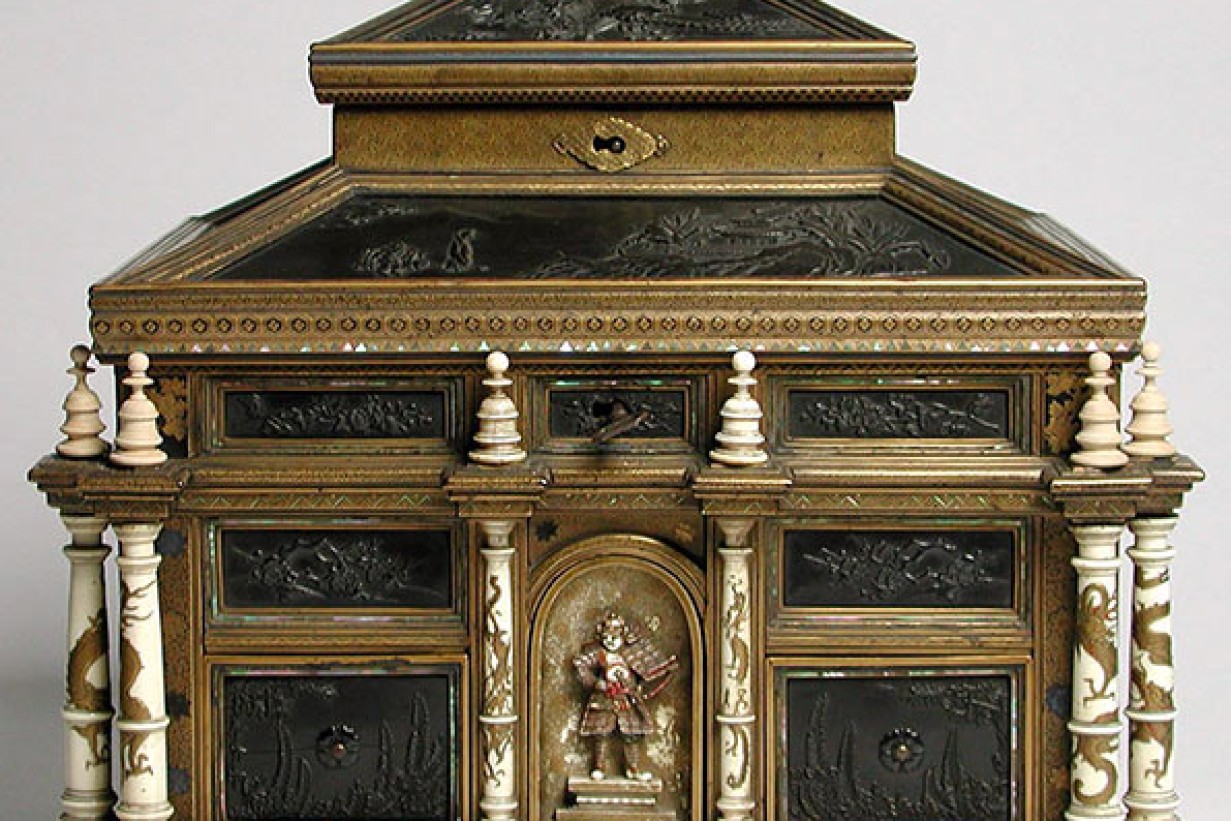
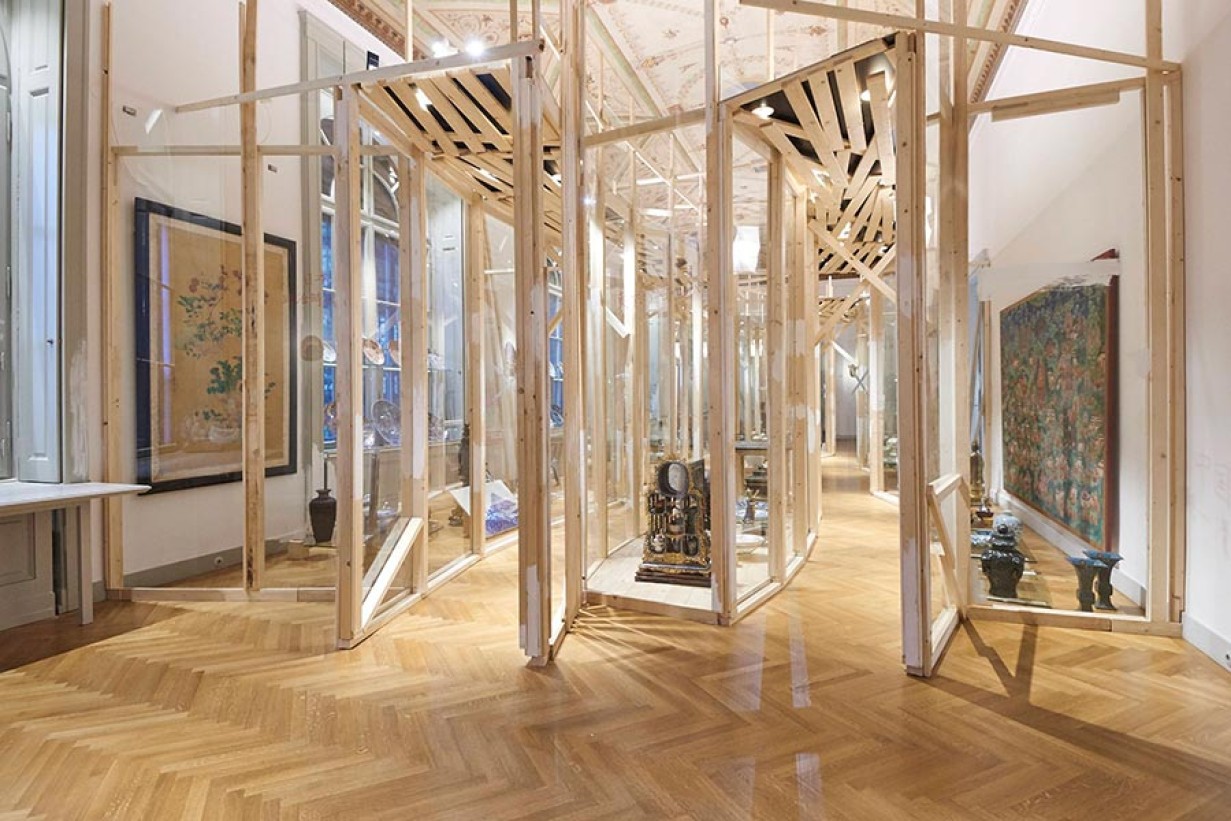
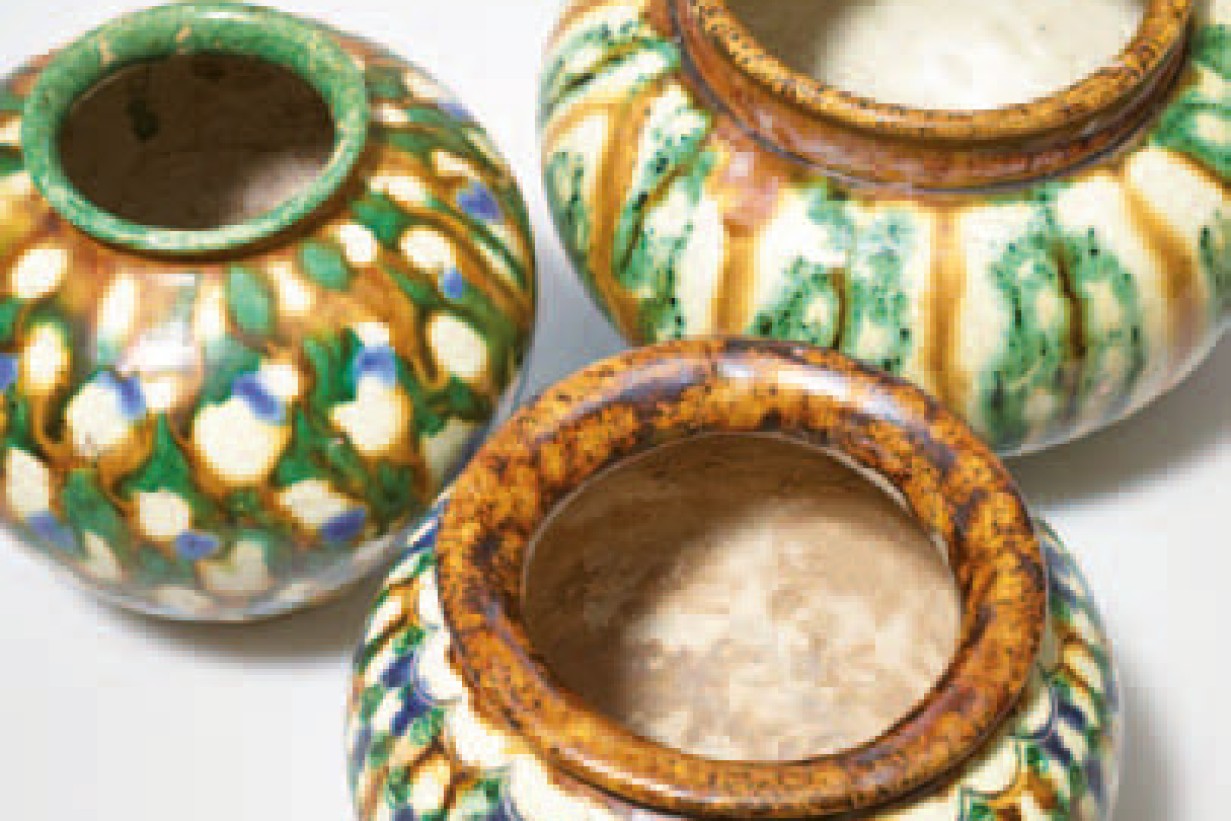
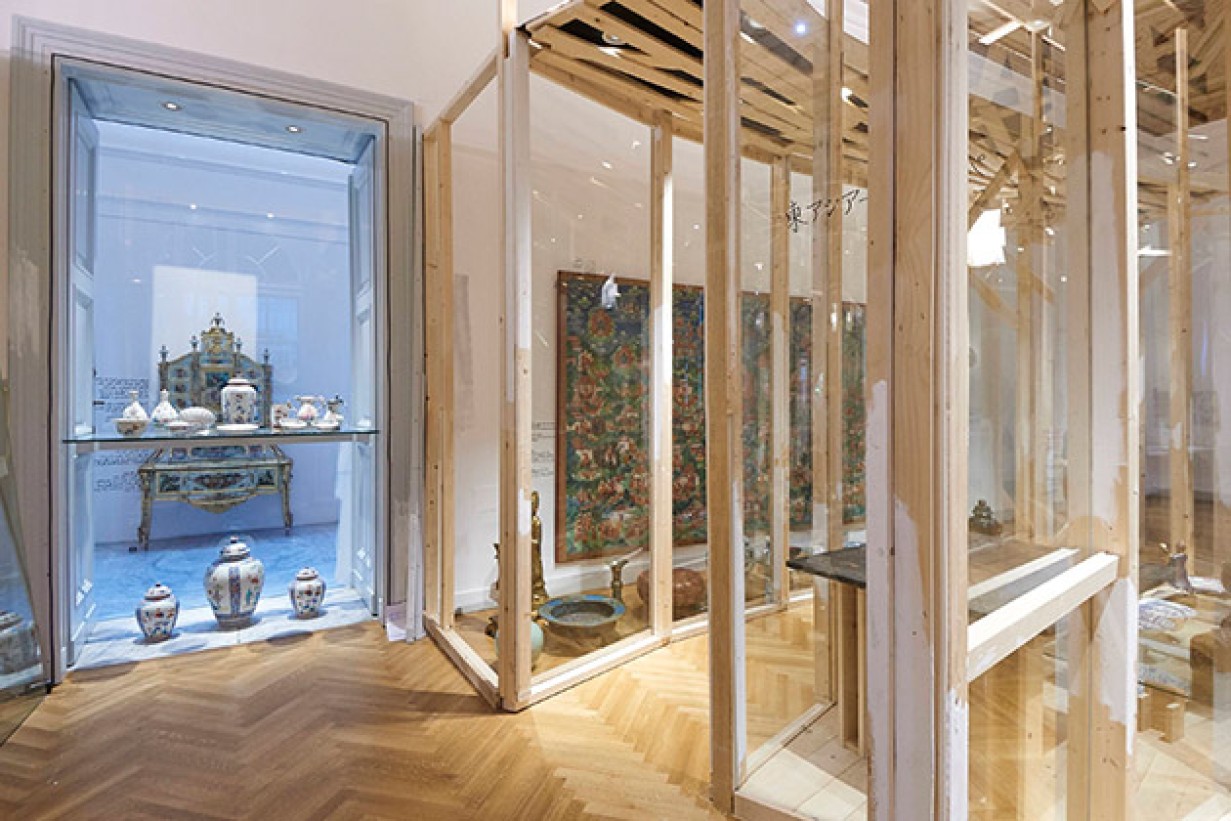
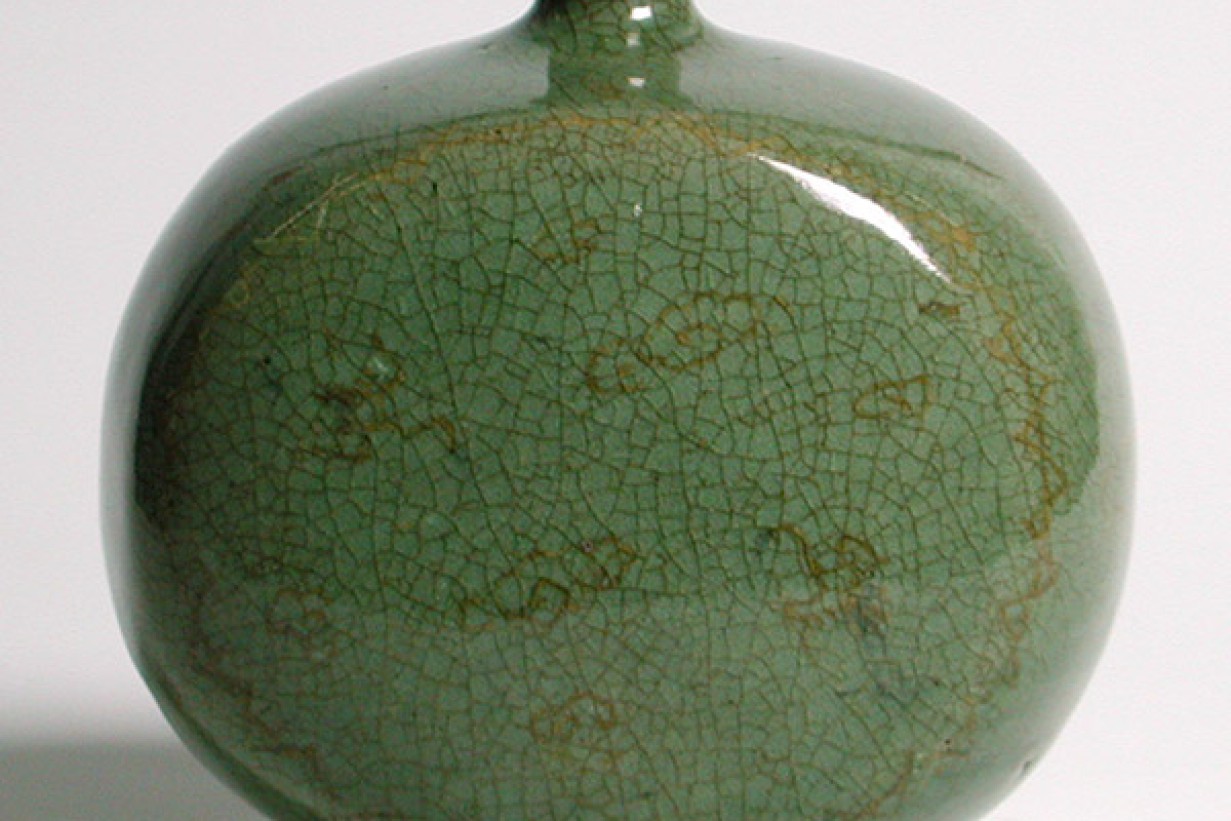
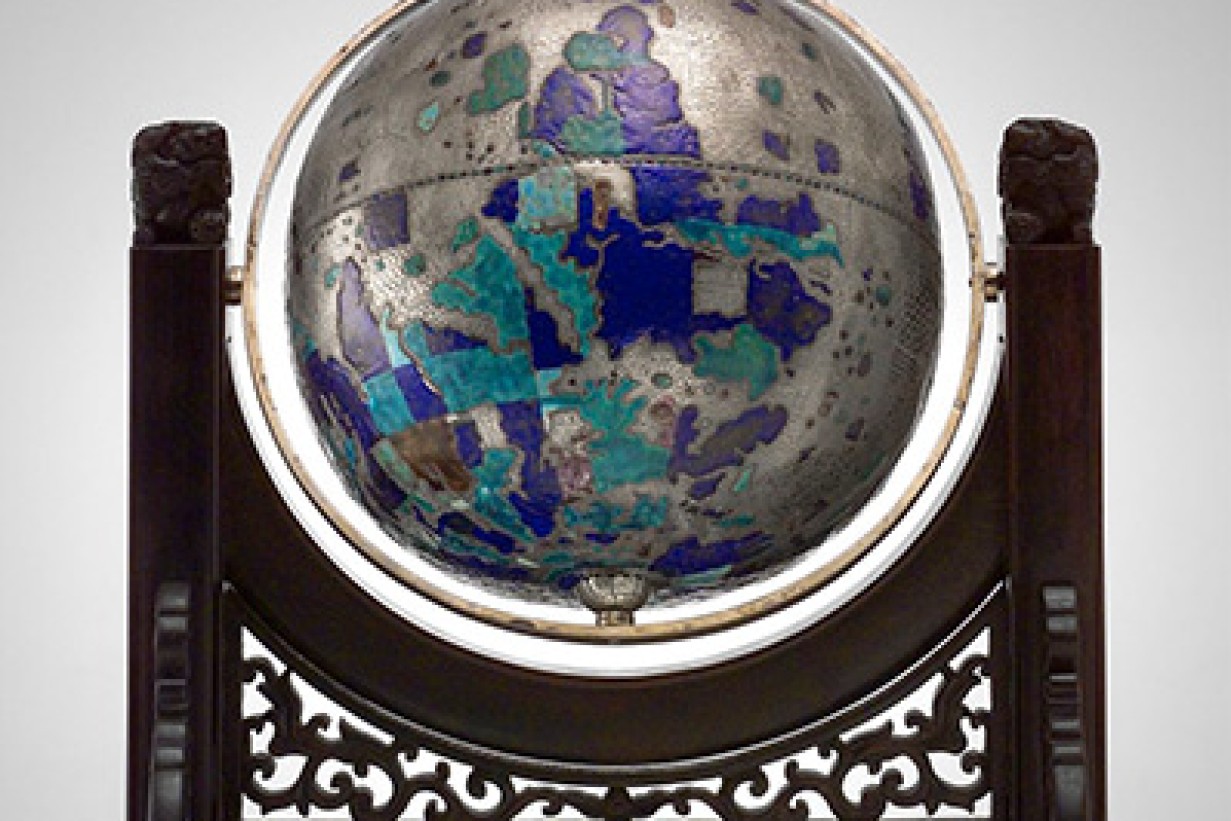
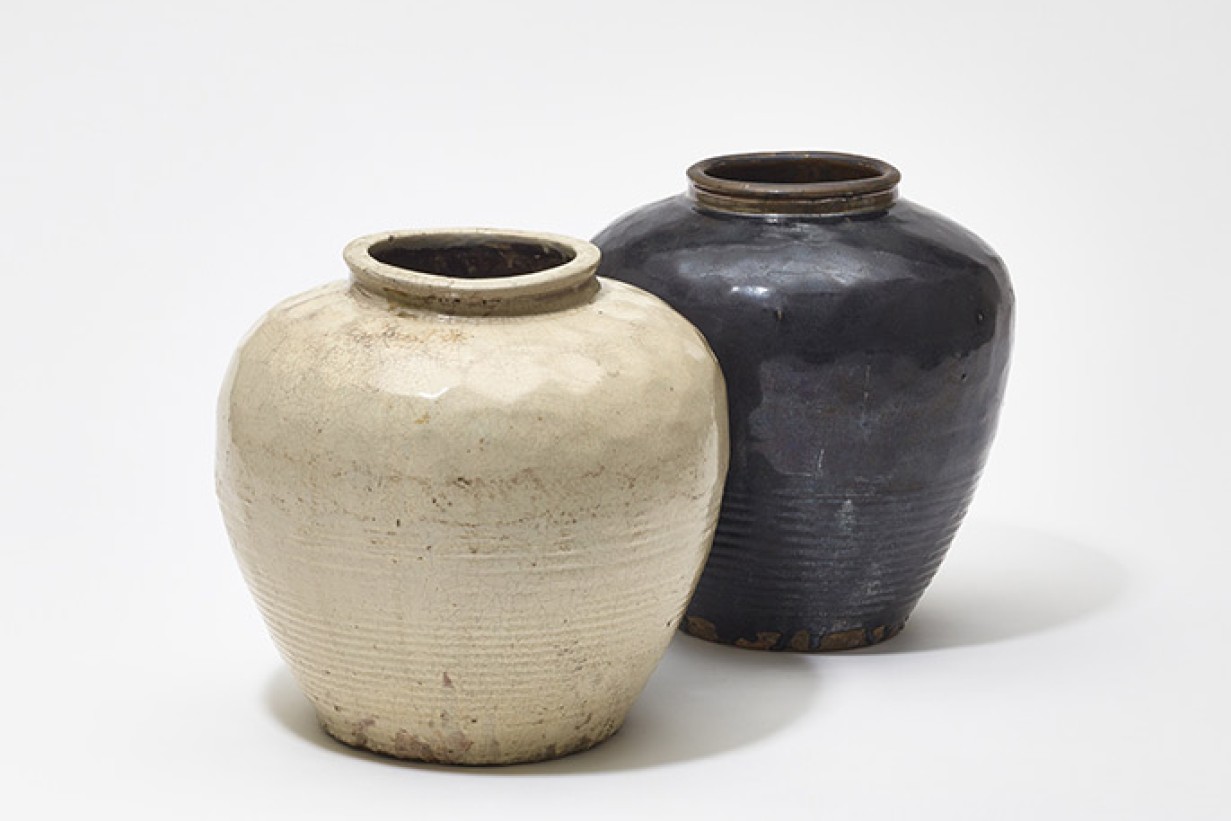
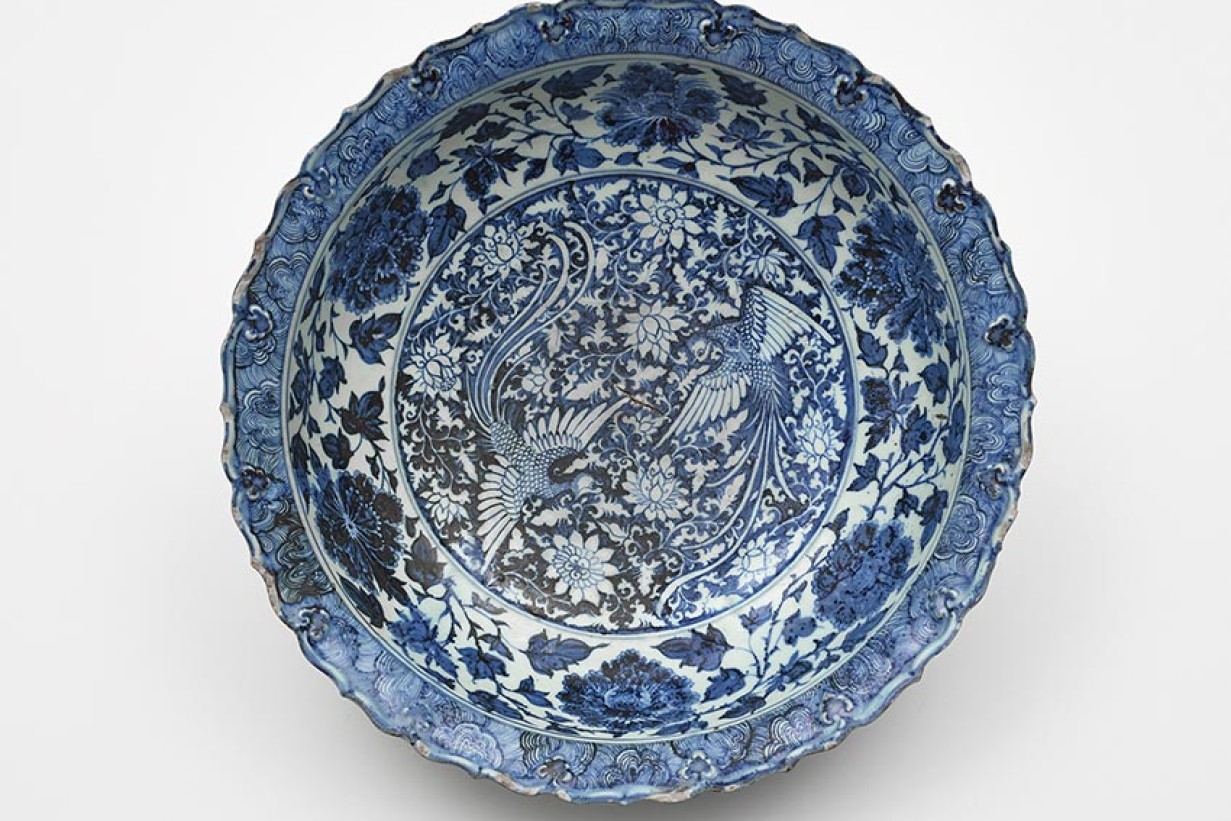
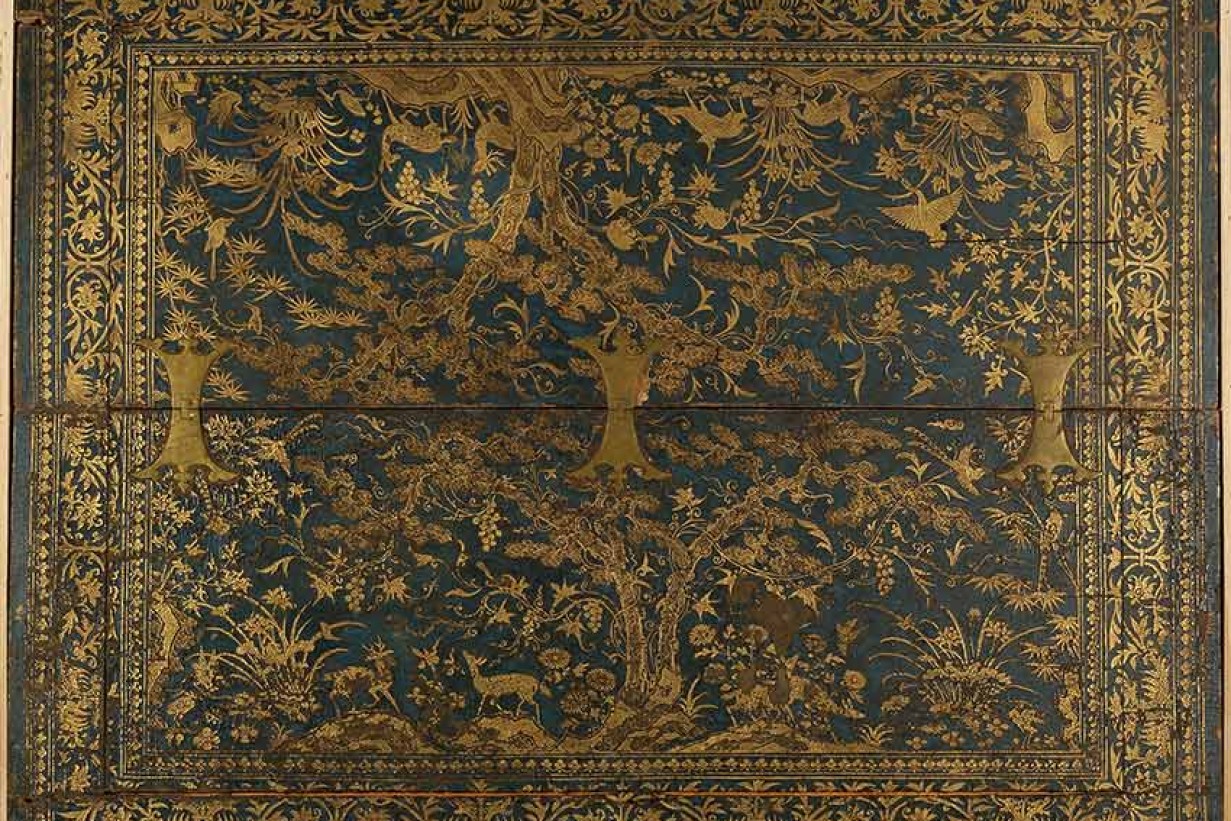
Previous Image
The MAK Asia Collection is one of the foremost collections of Asian art and applied arts in Europe. Its precious works manifest not only their aesthetic qualities, but furthermore inform on the reciprocal influences of great civilizations on many areas of art, thought and everyday life.
The new installation of the MAK Permanent Collection Asia on the museum ground floor opens up new perspectives.
“In Tadashi Kawamata the MAK has found the ideal artist for the newly conceived collection presentation. Ever since taking part in the Biennale in Venice in 1982, Tadashi Kawamata has been one of the leading contemporary artists in Asia and Europe. His works have an ephemeral character, thus are intensively related to place and time, subtly connecting the different cultures. His installation Yusuke Nakahara's Cosmology for the Echigo Tsumari Art Triennial in Japan in 2012 is a reinterpretation of an art critic’s comprehensive library and inspired us to invite him to work with the MAK Asia Collection.” (Johannes Wieninger, Curator, Asia Collection)
Kawamata’s ideas for the MAK Collection are based in concept on permanent change and the play of light and shade. Two large, scaffold-like showcase blocks will house the exhibits from the collection, enabling diverse viewpoints based on this shared “narrative through objects”. Kawamata will “envelop and embrace” the collection with his installation. Although seemingly chaotic at first glance and placed in confrontation to the collection objects, the contrast is only superficial. Tadashi Kawamata places the artworks in a context that keeps things moving, whether the act of observation or the observers themselves, for he says: “My projects are never finished; it seems quite natural to me that something is never finished.”
From the outset it was envisaged that Kawamata’s modular constructed room composition from 2014 would be redesigned after roughly two years. In line with a revised spatial concept by Kawamata from 2016, the position of the vitrine modules had been altered, and numerous objects from the MAK Asia Collection had been exchanged in May 2016. Kawamata has “liberated” the artworks from their vitrines and opened up entirely new perspectives on the exhibits.
Silver for the MAK at the International Design & Communication Awards (Istanbul), 2015
The MAK scored with the reinstallation of the MAK Permanent Collection ASIA. China – Japan – Korea >>>
The new installation of the MAK Permanent Collection Asia on the museum ground floor opens up new perspectives.
“In Tadashi Kawamata the MAK has found the ideal artist for the newly conceived collection presentation. Ever since taking part in the Biennale in Venice in 1982, Tadashi Kawamata has been one of the leading contemporary artists in Asia and Europe. His works have an ephemeral character, thus are intensively related to place and time, subtly connecting the different cultures. His installation Yusuke Nakahara's Cosmology for the Echigo Tsumari Art Triennial in Japan in 2012 is a reinterpretation of an art critic’s comprehensive library and inspired us to invite him to work with the MAK Asia Collection.” (Johannes Wieninger, Curator, Asia Collection)
Kawamata’s ideas for the MAK Collection are based in concept on permanent change and the play of light and shade. Two large, scaffold-like showcase blocks will house the exhibits from the collection, enabling diverse viewpoints based on this shared “narrative through objects”. Kawamata will “envelop and embrace” the collection with his installation. Although seemingly chaotic at first glance and placed in confrontation to the collection objects, the contrast is only superficial. Tadashi Kawamata places the artworks in a context that keeps things moving, whether the act of observation or the observers themselves, for he says: “My projects are never finished; it seems quite natural to me that something is never finished.”
From the outset it was envisaged that Kawamata’s modular constructed room composition from 2014 would be redesigned after roughly two years. In line with a revised spatial concept by Kawamata from 2016, the position of the vitrine modules had been altered, and numerous objects from the MAK Asia Collection had been exchanged in May 2016. Kawamata has “liberated” the artworks from their vitrines and opened up entirely new perspectives on the exhibits.
Silver for the MAK at the International Design & Communication Awards (Istanbul), 2015
The MAK scored with the reinstallation of the MAK Permanent Collection ASIA. China – Japan – Korea >>>
Media
REINSTALLATION MAK Permanent Collection ASIA: China – Japan – Korea, 2016
In the front: Bodhisattva, China, Song dynasty (960–1279)
Related

